The Koala
The koala is native to Australia. Its scientific name is Phascolarctos cinereus.
The word koala comes from the Dharug word gula. The Darug people lived in the Sydney area of New South Wales.
It is an arboreal herbivorous marsupial, meaning it carries its young in its pouch.
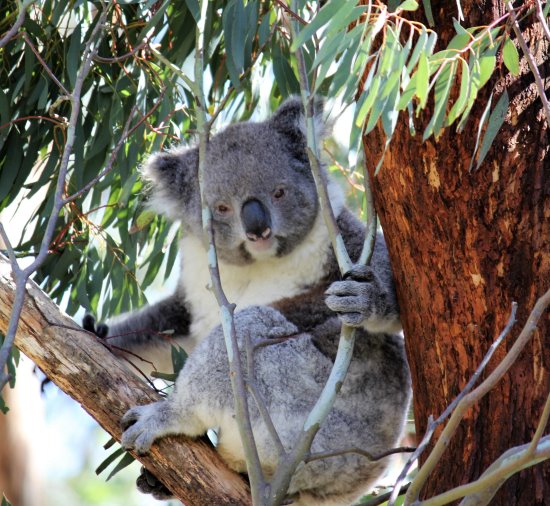
Koala at Koala Conservation Reserve, Phillip Island
Its fur colour can range from grey to brown – southern koalas are generally bigger and darker in colour and have thicker fur to survive the colder weather.
It has white on its tummy, under arms, and ears. The large leathery nose gives it a good sense of smell to find the right types of leaves to eat.
About 60-85cm in length and between 4-15kgs, the koala has a stout body, no tail, and fluffy ears.
Thicker fur on its rump acts as a cushion when perched on branches.
A nocturnal creature, the koala sleeps up to 18-20 hours a day.
It lives up to 20 years in the wild.
Five “fingers”, two opposable like our thumb, enable the koala to grip firmly onto branches and to grip its food. Two digits on their hind claws are fused into a grooming claw. Its feet have rough pads and long sharp claws.
Anatomists in South Australia discovered in 1996 that the koala has fingerprints, remarkably similar to a human fingerprint, with the same ridges and whorls. It seems the prints developed from the need to grasp leaves for food and to climb.
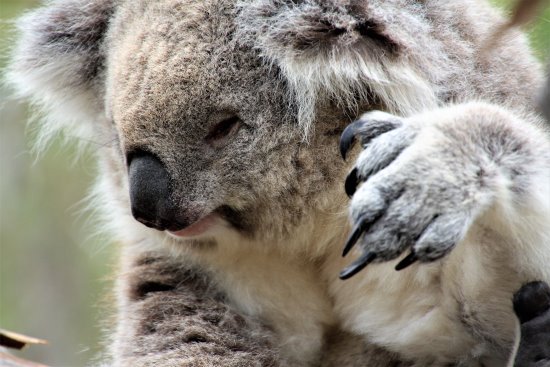
The koala's habitat is found along the eastern coast of Australia from Queensland to South Australia.
It lives in eucalyptus woodlands and forests but eats only some species of eucalypt leaves.
The “home range” of a koala varies in size and depends many factors including sex, age, type of forest and land availability.
A male marks its territory by rubbing a substance from a scent gland on its chest onto trees. It will move from tree to tree within its range.
The koala is a herbivore. Its only food is eucalyptus leaves which are not very nutritious, therefore it sleeps a lot to conserve energy. Adult males can eat between a half to one kilogram of leaves a night.
Interestingly, eucalyptus leaves can be toxic to some other animals.
Enough
moisture is ingested from leaves but it needs water in times of drought, when leaves are drier,
or during heat waves. There have been several cases of koalas entering suburban areas looking for water in pet bowls etc.
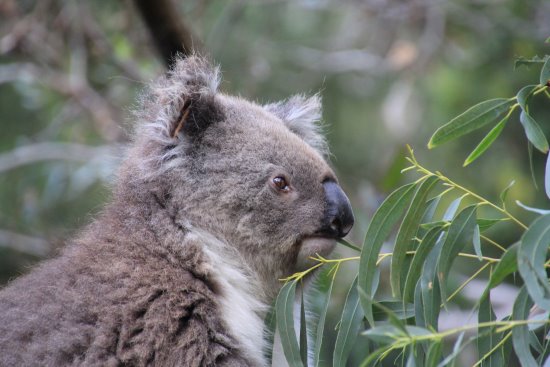
Koala Eating Eucalyptus Leaves
The koala breeds in summer, with one joey each year but not always.
Males bellow with a loud donkey-like bray to attract a mate.
The gestation period is 30 to 35 days. The undeveloped/immature young crawls into the pouch and latches on to a teat. It remains in the pouch for 6 months, drinking only milk. It weans at about one year old.
The joey emerges from the mother's pouch usually about July.
It rides on its mother's back or tummy until too big and leaves the mother's home range at 1-3 years.
The koala has no real natural predators but is threatened by Chlamydiaceae bacteria and koala retrovirus which leaves koalas susceptible to diseases.
Bush fires, drought, and loss of habitat (through logging, urban encroachment, cars and dogs) are its main threats.
Return to Top
Return to Phillip Island Wildlife from The Koala
Return to Home Page
Keep in touch - sign up for my free newsletter!
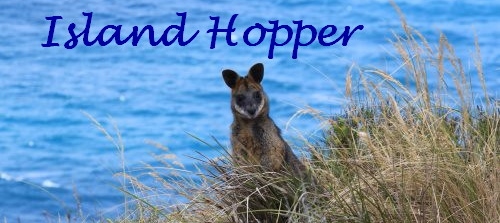
About Me Contact Me Site Map Privacy Policy
Copyright 2011-2025 phillip-island-balcony.com
All Rights Reserved
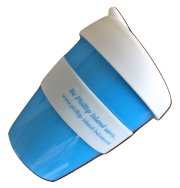
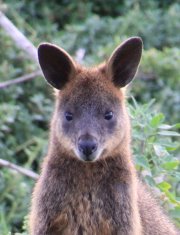
New! Comments
Have your say about what you just read! Leave me a comment in the box below.